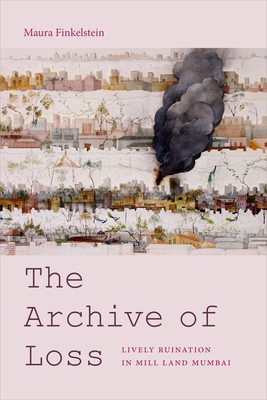
- We will send in 10–14 business days.
- Author: Maura Finkelstein
- Publisher: Duke University Press
- ISBN-10: 1478003987
- ISBN-13: 9781478003984
- Format: 15.2 x 22.9 x 1.8 cm, softcover
- Language: English
Reviews
Description
Mumbai's textile industry is commonly but incorrectly understood to be an extinct relic of the past. In The Archive of Loss Maura Finkelstein examines what it means for textile mill workers--who are assumed not to exist--to live and work during a period of deindustrialization. Finkelstein shows how mills are ethnographic archives of the city where documents, artifacts, and stories exist in the buildings and in the bodies of workers. Workers' pain, illnesses, injuries, and exhaustion narrate industrial decline; the ways in which they live in tenements exist outside and resist the values expounded by modernity; and the rumors and untruths they share about textile worker strikes and a mill fire help them make sense of the industry's survival. In outlining this archive's contents, Finkelstein shows how mills, which she conceptualizes as lively ruins, become a lens through which to challenge, reimagine, and alter ways of thinking about the past, present, and future in Mumbai and beyond.
- Author: Maura Finkelstein
- Publisher: Duke University Press
- ISBN-10: 1478003987
- ISBN-13: 9781478003984
- Format: 15.2 x 22.9 x 1.8 cm, softcover
- Language: English English
Mumbai's textile industry is commonly but incorrectly understood to be an extinct relic of the past. In The Archive of Loss Maura Finkelstein examines what it means for textile mill workers--who are assumed not to exist--to live and work during a period of deindustrialization. Finkelstein shows how mills are ethnographic archives of the city where documents, artifacts, and stories exist in the buildings and in the bodies of workers. Workers' pain, illnesses, injuries, and exhaustion narrate industrial decline; the ways in which they live in tenements exist outside and resist the values expounded by modernity; and the rumors and untruths they share about textile worker strikes and a mill fire help them make sense of the industry's survival. In outlining this archive's contents, Finkelstein shows how mills, which she conceptualizes as lively ruins, become a lens through which to challenge, reimagine, and alter ways of thinking about the past, present, and future in Mumbai and beyond.


Reviews